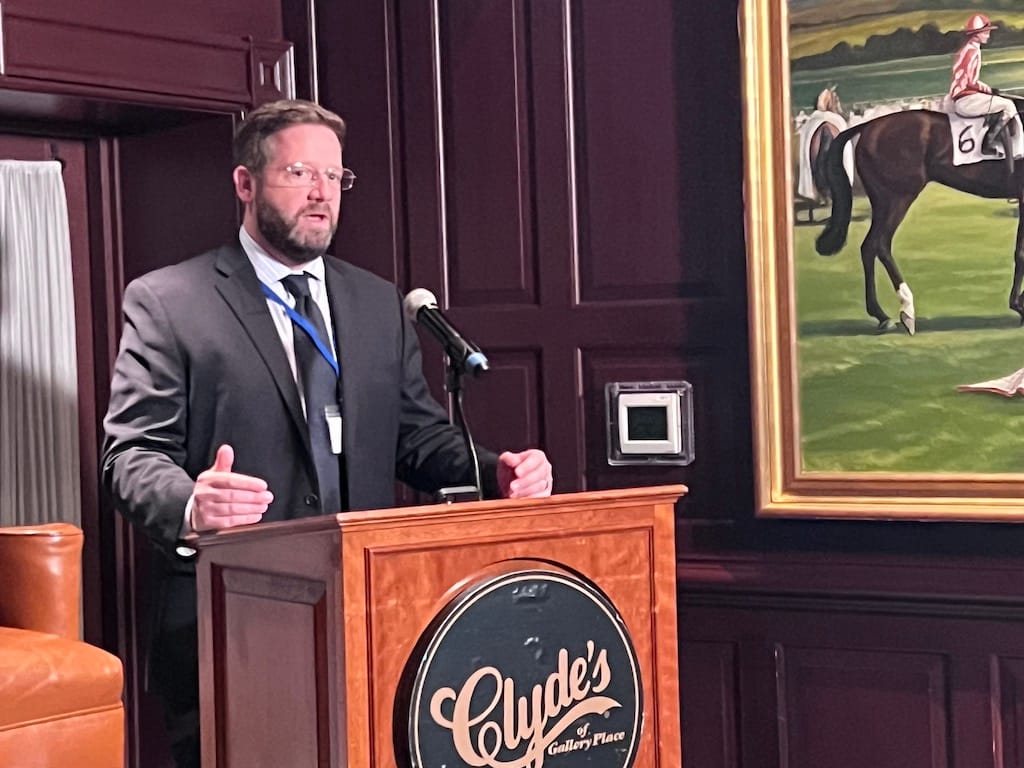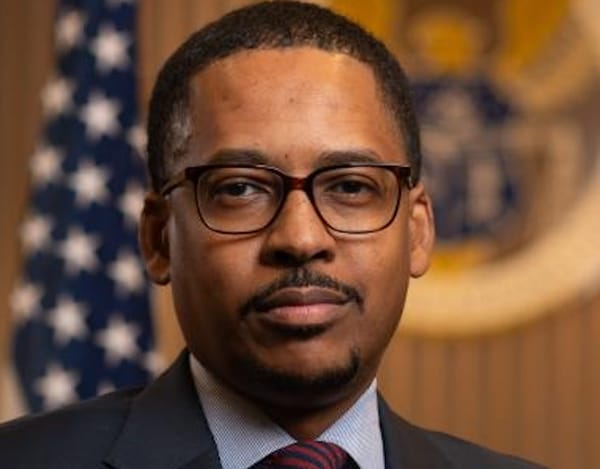BEAD Director Says NTIA is Working on Changes to Letter of Credit
Evan Feinman, speaking at the BEAD Implementation Summit, said the agency will also issue guidance on project auditing.

WASHINGTON, September 22, 2023 – The National Telecommunications and Information Administration is working on changes to the letter of credit requirements for its flagship broadband grant program, according to the program’s director Evan Feinman.
The letter of credit requirement in the $42.5 billion Broadband Equity, Access and Deployment program requires providers receiving grants to expand infrastructure to obtain a letter of credit from a bank for 25 percent of the project cost.
That means awardees will have to back the letters with cash, which many in the broadband industry have said will push small and community providers out of BEAD projects.
Feinman said the letter of credit requirement accomplishes two goals for the NTIA: it promises some recovery if a project fails, and offers a chance for third-party financial analysis of projects.
“What we did not do was offer a menu of options to do that. We are hard at work on that now,” he said. “You’re going to hear more from us about the letter of credit requirement in the relatively near future.”
The discussion was part of a question and answer session with the broadband community at the Broadband Breakfast BEAD Implementation Summit on Thursday.
The summit also featured state broadband leaders, other federal grant program officials, investors, and service providers in conversations about key focuses as states work to allocate and deploy BEAD funds.
When asked about a provision in the program allowing for internet service providers accepting grant money to conduct self-audits, Feinman said the NTIA, the agency responsible for administering the program, will be issuing more guidance to states on how to monitor BEAD projects.
That guidance will not be created in the next three months, though.
“We have deep financial resources in the bank, but our human capital is not as thick as you might like,” he said. “We got to do initial proposals,” he added, referencing grant procedures which states will be submitting to the agency until December 27.
A new model for broadband expansion
Feinman repeatedly drew comparisons to the effort to bring electricity to rural America in the 1930s, but said that BEAD is different from other federal grant programs.
“This is not a normal grants program. This is in fact, not a grants program at all,” he said. “This is a universal coverage broadband infrastructure program. The tools that are being used to get there are grants.”
He said the program is a departure from previous broadband funding efforts because so much of its goal – universal broadband coverage in the U.S. – hinges on working partnerships, both between federal and state officials and between local governments, providers, co-operatives, and communities. That’s because of the complexity of the task and the sheer number of people who need to understand that task to accomplish it.
“This room, we have our hands on the pen. We are writing the next chapter of the great American infrastructure story,” he said at the event. “But this is going to require a true whole-of-society effort.”
If you missed the BEAD Implementation Summit, sign up for Broadband Breakfast’s BEAD Starter Pack for $35/month (cancel anytime). You’ll get access to all the videos and each of the three Breakfast Club reports prepared for the BEAD Implementation Summit:
- July 2023 – A Deep Dive into Allocations Under the Broadband Equity, Access and Deployment Program
- August 2023 – Precursors to BEAD Implementation: A Deep Dive Into Prior Broadband Programs
- September 2023 – A Deep Dive into the BEAD Program’s Matching Funds
Already a Broadband Breakfast Club member? Watch the videos!








